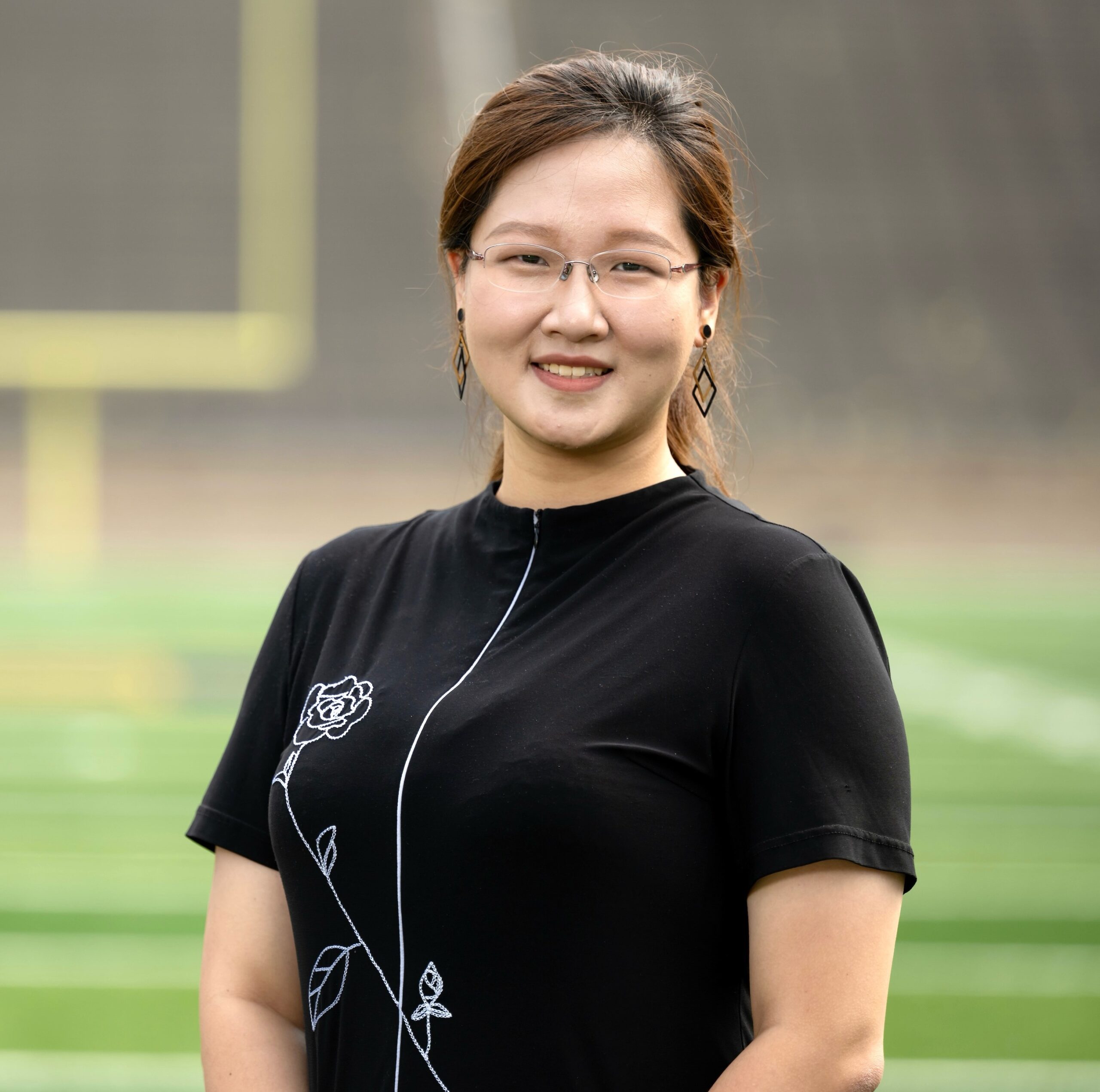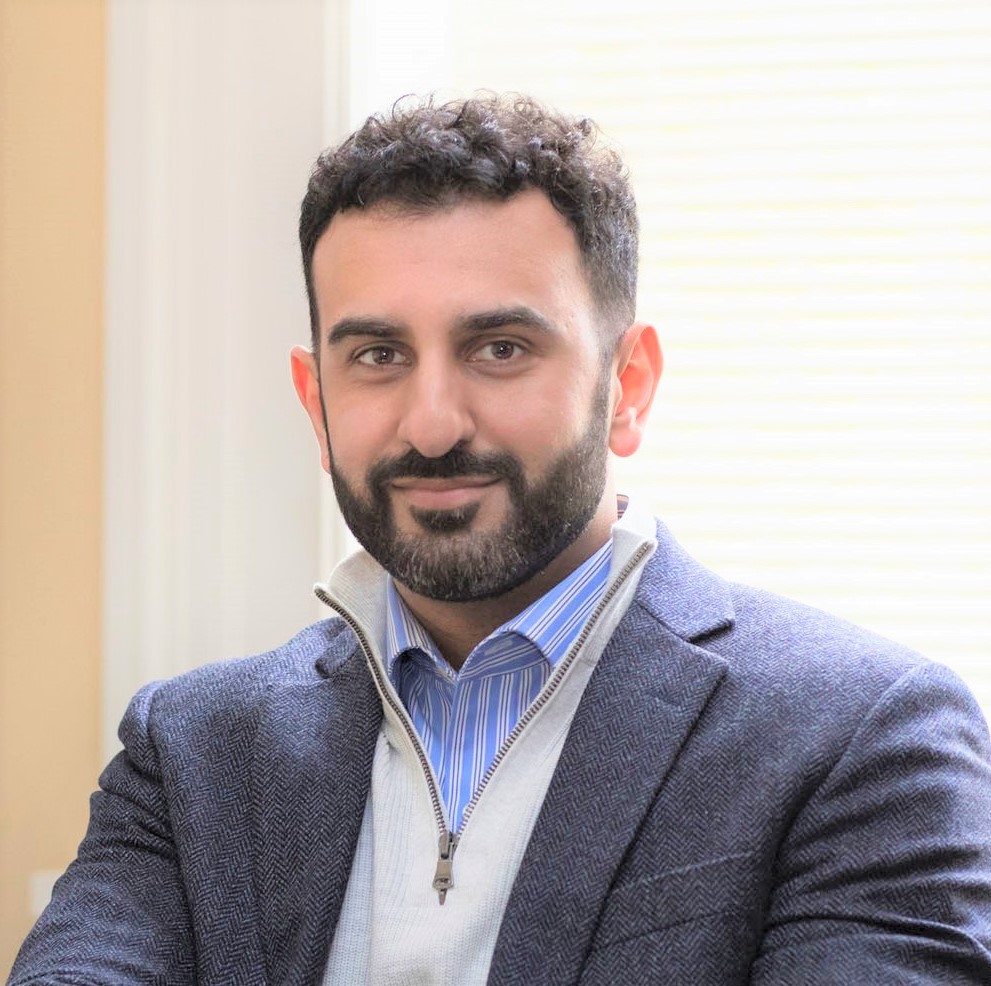Ph.D. in Analytics

Overview
The core mission of the Mendoza PhD in Analytics is to develop thought-leaders in the analytics space that are engaged in impactful, cutting-edge scholarly research that considers the ethical dimension of data and its usage. Graduates of the PhD program are well-positioned to attain academic jobs at top business schools, where they can pursue successful careers in data analytics intensive domains such as business analytics, data science, information systems, operations, and computational social science, conducting research that is impactful and supports human flourishing.
Why Attain a PhD in Analytics?
The PhD degree is intended for those interested in the pursuit of knowledge – creating knowledge through research and disseminating new knowledge to students in the classroom. The field of analytics is without question one that is having a profound impact on business and society. There is a need for new professors capable of pursuing knowledge related to themes such as leadership in an AI-enabled world, ethical human-centered analytics, impactful computational social science, and next generation digital experimentation. These are just a few examples – we encourage our doctoral students to pursue whatever topics they’re passionate about and support them throughout their journey.
Why Notre Dame?
The Department of IT, Analytics, and Operations (ITAO) is one of the premiere analytics departments, with world-class faculty, cutting-edge research labs, unparalleled industry connections, and access to a large network of Notre Dame alumni that are eager to support analytics thought-leadership.

Faculty Productivity and Reputation
The ITAO department encompasses a diverse set of faculty with significant research capabilities and extensive editorial board experience. ITAO faculty members currently serve in 10+ editorial roles at major journals related to analytics, information systems, and operations; and others have served in similar positions at quality journals previously. In recent years, ITAO faculty have won research awards at top journals and associations such as AIS, INFORMS, POM Society, and the IEEE.

Research Labs and Centers
The ITAO department has multiple analytics-focused research labs, including the Gaming Analytics Lab (GAMA) and the Human-centered Analytics Lab (HAL). Department faculty are also actively involved with the Notre Dame Technology Ethics Center (ND-TEC) and the Lucy Family Institute for Data and Society. Additionally, the Mendoza College of Business has a full-time dedicated data science team that supports data acquisition, collection, and wrangling as part of the Mendoza Behavioral Lab (MBL).

Partnerships with Industry
Our faculty routinely collaborate with various industry partners and federal agencies, including Electronic Arts, Ubisoft, eBay, Oracle, and NASA. The department is also actively involved with Notre Dame California (ND California), iNDustry Labs, and the Applied Analytics and Emerging Technology Lab (AeTL).

Cutting-edge Curriculum
It is essential that Ph.D. programs equip their graduates with the thorough, current training demanded by today’s market. Our analytics PhD program is well-positioned to produce “T-shaped” scholars that receive a foundation comprising select theories and ethics coursework, and depth via analytics methods courses and seminars. We see an opportunity to develop multi-dimensional scholars well-versed in contemporary analytics methods while also being adept at framing problems, thinking critically about the logic and flow between a problem and proposed solution, and capable of extrapolating their work to the bigger picture.

Institutional Prestige
Notre Dame is a Top 20 US News university with an international reputation and brand. A PhD from Notre Dame therefore sets our graduates up for success in academia at elite private schools or flagship state universities. Some of our graduates are also well-positioned for industry-oriented research roles.
The IT, Analytics, and Operations (ITAO) faculty use contemporary analytics methods such as machine learning, econometrics, statistics, and analytical modeling to study an array of research topics including ethics and privacy, health, sports and gaming, AI business applications, digital experimentation methods, and e-commerce:
- Ahmed Abbasi (AI, machine learning, text analytics, user modeling)
- Corey Angst (health analytics, ethics, privacy, security)
- Nicholas Berente (digital innovation, managing AI, institutional change)
- Francis Bilson Darku (sequential analysis, nonparametric statistics, econometrics)
- Jeff Cai (statistical learning, network analysis, data science)
- Sarv Devaraj (business analytics, healthcare management, supply chains)
- Rob Easley (economic modeling, Internet auctions, e-commerce)
- Ken Kelley (psychometrics, statistical methods, human-centered analytics)
- John Lalor (machine learning, natural language processing)
- Junghee Lee (innovation/technology in supply chains, healthcare operations)
- Kirsten Martin (technology ethics, privacy, business responsibility)
- Alfonso Pedraza-Martinez (humanitarian operations, disaster management, analytical modeling)
- Xinxue (Shawn) Qu (innovation diffusion, data management, predictive analytics)
- Sriram Somanchi (machine learning, event and pattern detection)
- Yoon Seock Son (econometrics, mobile strategy, AI business strategies)
- Daewon Sun (pricing strategies, resource management, economics of IS)
- Margaret Traeger (computational social science, social networks, health analytics)
- Katie Wowak (supply chains, traceability in global networks)
- Yang Yang (machine learning, network analysis, computational social science)
- Zifeng Zhao (statistical methods, large-scale forecasting, risk monitoring)
Program Structure
The program is designed to be five-years, full-time, in-residence. Click below for a year-by-year breakdown of how the program is structured.
In the first year, you will learn foundational theories, concepts, and methods related to analytics. ITAO seminar courses will include Human-centered AI, Philosophy of Science, and Computational Social Science. Methods related coursework will include classes related to machine learning, data science, statistics, and/or econometrics. Based on prior coursework, some students might be able to opt out of certain courses. In consultation with the program director, you will form a plan of study for methods courses and electives that align with your research interests.
At the beginning of the first year, you will also be assigned a faculty mentor that will guide your efforts related to the first-year research paper – the purpose of the first-year paper is to demonstrate the potential to produce high-quality scholarly manuscripts.
In year 2, you will continue to broaden and deepen your understanding of the analytics space with ITAO seminars related to Human-centered Statistics, Mathematical Modeling for Consumer Analytics, Operations and Prescriptive Analytics, and Data and Technology Ethics. At the end of the second year, you will have an examination requirement (in the form of an exam or paper). This examination will test your knowledge of ITAO seminar courses taken over the first two years. Your second-year faculty mentor will offer guidance on the paper.
You will wrap up any remaining coursework and turn your attention to pushing research projects towards publication.
In addition to managing your research portfolio, you’ll focus on finalizing your dissertation topic and defending your proposal.
The final year will involve interviewing for open positions, completing dissertation chapters, and having your final defense. And then, onward and upward into your exciting new career!
Current Students

Marialena Bevilacqua received a BA in Math with a minor in Statistics from the College of Holy Cross in Massachusetts, where she was class president and captain of the field hockey and lacrosse teams. She attained an MS in Business Analytics from Georgetown University. Marialena was a brand operations analyst and manager plus “rookie of the year” at Thrasio.

Ryan Cook received a BS in Analytics with a minor in Philosophy from Notre Dame, and an MS in Computer Science from the University of Pennsylvania. He worked as a research scientist in Notre Dame’s Human-centered Analytics Lab and Center for Computer Assisted Synthesis, supporting projects related to NLP and network analysis. Ryan was also previously an analyst at EY in Chicago.

Jiehui Luo attained dual bachelor’s degrees from Dartmouth College (Computer Engineering) and Mount Holyoke College (Computer Science with a minor in Math). She received her MPhil in Computer Science and Engineering from HKUST. Her research interests relate to human-computer interaction and human-centered AI. Jiehui was previously a product manager at Tencent.

Alyona Nefedova majored in Math at the Higher School of Economics. Her thesis examined classification and discovery of R-matrices. She received the Governor’s medal for academic excellence. Alyona explored trading models at the Center for Mathematical Finance, and assisted with cognitive science projects at the fMRI Lab. She previously taught middle school math and volunteers at Canada/USA Mathcamp.

Kezia Oketch attained a BS in Computer Science from Spelman College and an MS in Engineering, Science, and Technology Entrepreneurship from Notre Dame. She was a Gold Scholar at the Grace Hopper Conference and co-founded a research startup focused on technology-based solutions to the cancer crisis in Kenya. Kezia was also a software engineer at an Ohio-based tech company.

Sunan Qian double majored in Economics and Math, and minored in French, at Mount Holyoke College. She received an MS in Finance with a minor in Quantitative Methods from Carnegie Mellon University – her thesis explored the impact of environmental regulation on firms’ carbon emissions and market value. Sunan was a digital consultant for Accenture in Tokyo.

Will Stamey was a double major in Economics and Math at Baylor University, with a minor in Philosophy. He was a Baylor Fellow and Crane Scholar, and completed the health economics sequence. Will’s honors thesis explored the impact of online education on academic outcomes. He was also a researcher at the Colorado Summer Institute in Biostatistics.

Becky Zhang double majored in Computer Science & Economics, and Applied Math, at Washington University in St. Louis. She received an MS in Computational and Applied Math from the University of Chicago – her thesis explored methods for stochastic non-linear optimization. Becky’s industry experience includes internships as a research analyst and data scientist at major software and technology companies.

Xinyuan Zhang completed her undergraduate coursework from the University of Sydney, where she double majored in Finance and Statistics and researched sentiment analysis in the Computing Finance Lab. Xinyuan received an MS in Statistics from UCLA – her thesis explored preference models for two-sided platforms. She was also a researcher in the Trusted AI Systems Lab at Nankai University.
Contact Me

As Director of the Analytics PhD program, I’m happy to answer any questions you might have about our program (or a PhD in general). Feel free to email me at aabbasi@nd.edu. I look forward to connecting with you.
Our application deadline for the Fall 2025 incoming cohort is January 7, 2025. You can apply using the “APPLY” button in the side menu (also appearing in the menu at the top of the page).
Frequently Asked Questions
All students who are admitted to the program will be given a full tuition waiver. So the program is essentially tuition-free, with the only direct costs being miscellaneous university fees. In addition, all PhD students are paid a stipend of $42,000 a year. That stipend serves as compensation for your research activities (and for the teaching you would do in years three and four).
We require either the GRE or the GMAT, and have no preference between the two. If you’ve previously taken one of those tests, we require a score that is less than five years old. Unfortunately, the admissions committee will not waive the GRE/GMAT requirement under any circumstances.
It’s hard to say, as that is a function of a given application cycle, along with the rest of an applicant’s admissions portfolio. Most years, however, verbal and quantitative percentiles in the 80’s or above will be needed to advance to the short list.
Yes, if English is not your native language, or if English was not your language of college instruction. We accept either the TOEFL or the IELTS. If you’ve previously taken one of those tests, we require a score that is less than two years old.
You’ll fill out an online application form that will be linked on this site. And you’ll provide your resume, a statement of purpose/intent, three letters of recommendation, and unofficial transcripts of college (and any masters) degrees.
No. This sort of degree is best thought of as a research apprenticeship—where you are learning research skills in collaboration with faculty. That sort of collaboration requires a full-time, five-year, in-residence commitment.
Yes. While the program will prepare graduates to work in teaching institutions, government, and industry, the priority will be to prepare students for faculty roles so that they can be thought-leaders involved in teaching the next generation of analytics students and working to advance analytics-oriented research. Typically 80-90% of PhDs in Analytics take academic positions, while 10-20% pursue careers in industry (e.g., Silicon Valley, Wall Street, Think Tanks, etc.).
No. This is—first and foremost—a research degree. Teaching is part of the degree, as teaching is an important part of a professor’s career. But, if teaching or administration are your main focus, you might do a search for teaching-oriented PhD programs or Doctor of Business Administration (DBA) programs, which are sometimes also called Executive Doctorate programs.
